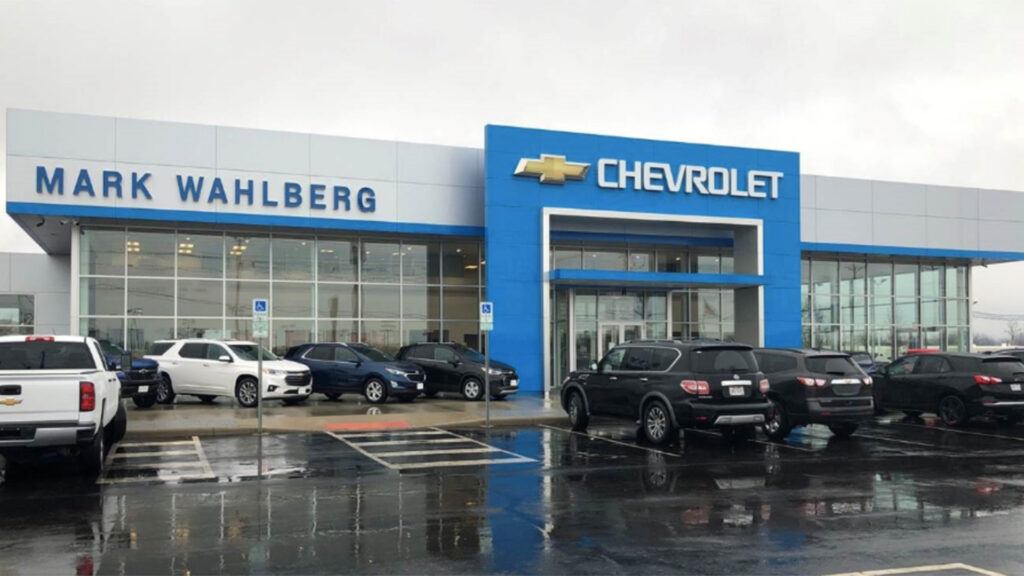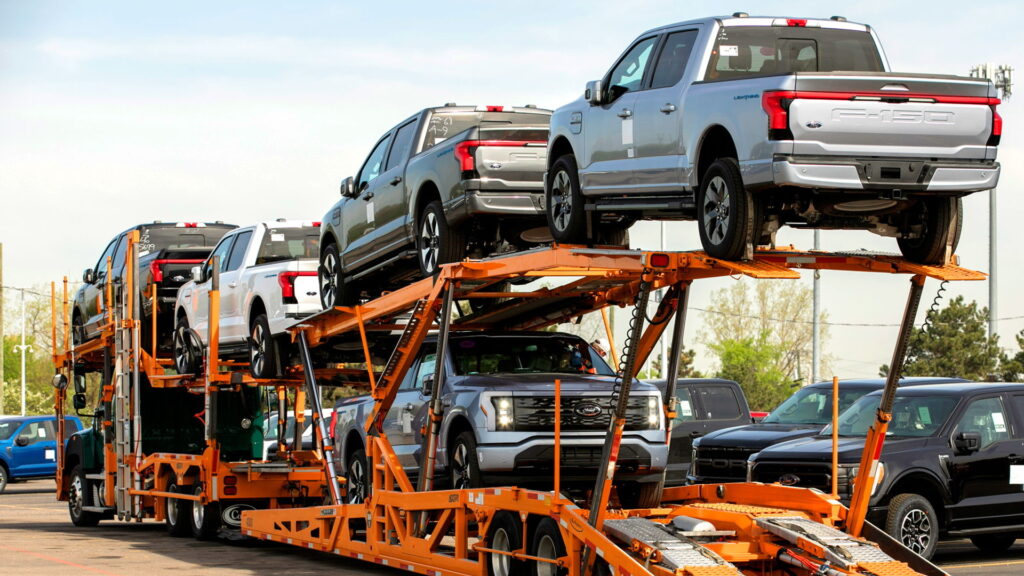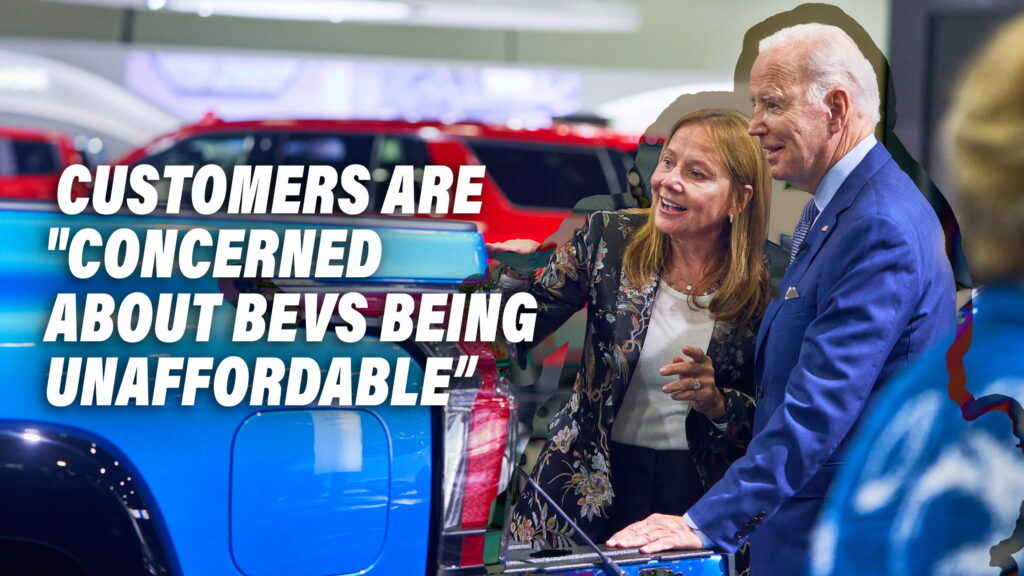A group of 3,882 dealers sent President Biden a letter begging him to lighten requirements for EV sales in the future. They cite a number of concerns that they have surrounding his administration’s mandates. Some are sincere issues, but there’s likely more to this letter than altruistic dealers concerned for their customers.
In the letter dated November 28th, 2023, dealers say that while BEVs are ideal for many people, “demand today is not keeping up with the large influx of BEVs arriving at our dealerships.” They go on to say that the regulations are unrealistic based on current and forecasted customer demand. At one point, the letter even talks about how nobody knows more than them about car customers.
Major issues at hand, in the eyes of the dealers at least, include charging infrastructure. Customers who don’t have a way to charge at home have to rely on the public network which isn’t exactly amazing. In addition, they say that customers are “concerned about BEVs being unaffordable.” Some customers have to deal with poor weather that can reduce range. Others must drive so far that charging often isn’t wildly practical. Still others have to tow and we all know how that goes for an EV.
More: Toyota Fined $60 Million For Shady Lending Practices Including Unwanted Product Bundles

Some of these points indeed represent genuine challenge. Not having adequate charging is perhaps the biggest issue with electric cars. As we’ve pointed out before, the absence of home charging solutions also poses a substantial challenge. Towing continues to be a concern, but it’s possible that RAM has a leg up on that with the RAMCharger setup. Some EVs do really struggle in poor weather but others have no issue at all so customer awareness might be the bigger problem here. Still, there’s more here than dealers would have you believe.
Keep in mind that these dealers might tout themselves as “small businesses”, but according to a study by the National Bureau of Economic Research, the top one percent of the “blue-collar rich” are car dealers. 20 percent of car dealers had an owner (not the dealership itself) who made more than $1.5 million a year in 2019.
Dealers invest tens of millions of dollars annually in lobbying efforts, aimed at influencing land regulations, licensing, and, more recently, advocating for the ban on direct sales. They really don’t like competition and they’re happy to spend up front to ensure they don’t lose cash on the back end. Maybe dealers could themselves solve that “unaffordable” concern they voiced.
Another study found that dealer markup alone accounted for 35-60% of all inflation related to car prices across the USA. I’m not an economist but I’d reckon that if dealers slashed prices and started trying to compete for business rather than stack greedy markups on new cars they might sell a lot more of them. Of course, then those sweet sweet price-gouging profits they’ve come to love over the past few years would dry up. We can’t have that, can we?
You can read the letter in its entirety below or visit the website that the dealers have shared here.
Lead image GM / Chevy
A Letter to the President
Dear Mr. President,
We are auto dealers from across the country who collectively sell every major brand in the U.S. We are small businesses employing thousands of Americans. We are deeply committed to the customers we serve and the communities where we operate, which is why we are asking you to slow down your proposed regulations mandating battery electric vehicle (BEV) production and distribution.
Your Administration has proposed regulations that would essentially mandate a dramatic shift to battery electric vehicles (BEVs), increasing year after year until 2032, when two out of every three vehicles sold in America would have to be battery electric.
Currently, there are many excellent battery electric vehicles available for consumers to purchase. These vehicles are ideal for many people, and we believe their appeal will grow over time. The reality, however, is that electric vehicle demand today is not keeping up with the large influx of BEVs arriving at our dealerships prompted by the current regulations. BEVs are stacking up on our lots.
Last year, there was a lot of hope and hype about EVs. Early adopters formed an initial line and were ready to buy these vehicles as soon as we had them to sell. But that enthusiasm has stalled. Today, the supply of unsold BEVs is surging, as they are not selling nearly as fast as they are arriving at our dealerships — even with deep price cuts, manufacturer incentives, and generous government incentives.
While the goals of the regulations are admirable, they require consumer acceptance to become a reality. With each passing day, it becomes more apparent that this attempted electric vehicle mandate is unrealistic based on current and forecasted customer demand. Already, electric vehicles are stacking up on our lots which is our best indicator of customer demand in the marketplace.
Mr. President, no government agency, no think tank, and no polling firm knows more about the automobile customer than us. We talk to customers every day. As retail automotive dealerships, we are agnostic as to what we sell. Our business is to provide customers with vehicles that meet the needs of their budgets and lifestyles.
Some customers are in the market for electric vehicles, and we are thrilled to sell them. But the majority of customers are simply not ready to make the change. They are concerned about BEVs being unaffordable. Many do not have garages for home charging or easy access to public charging stations. Customers are also concerned about the loss of driving range in cold or hot weather. Some have long daily commutes and don’t have the extra time to charge the battery. Truck buyers are especially put off by the dramatic loss of range when towing. Today’s current technology is not adequate to support the needs of the majority of our consumers.
Many of these challenges can and will be addressed by our manufacturers, but many of these challenges are outside of their control. Reliable charging networks, electric grid stability, sourcing of materials, and many other issues need time to resolve. And finally, many people just want to make their own choice about what vehicle is right for them.
Mr. President, it is time to tap the brakes on the unrealistic government electric vehicle mandate. Allow time for the battery technology to advance. Allow time to make BEVs more affordable. Allow time to develop domestic sources for the minerals to make batteries. Allow time for the charging infrastructure to be built and prove reliable. And most of all, allow time for the American consumer to get comfortable with the technology and make the choice to buy an electric vehicle.Sincerely,
Supporting Dealerships





